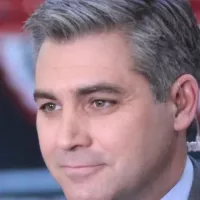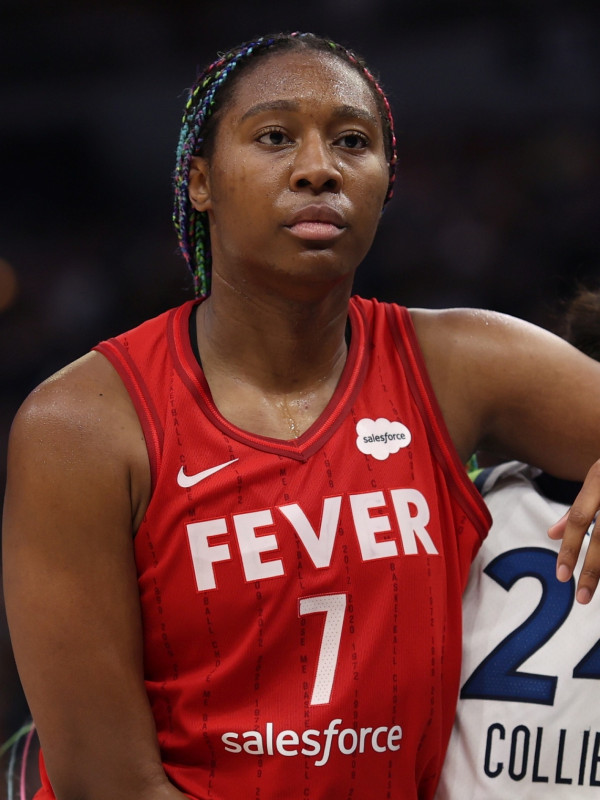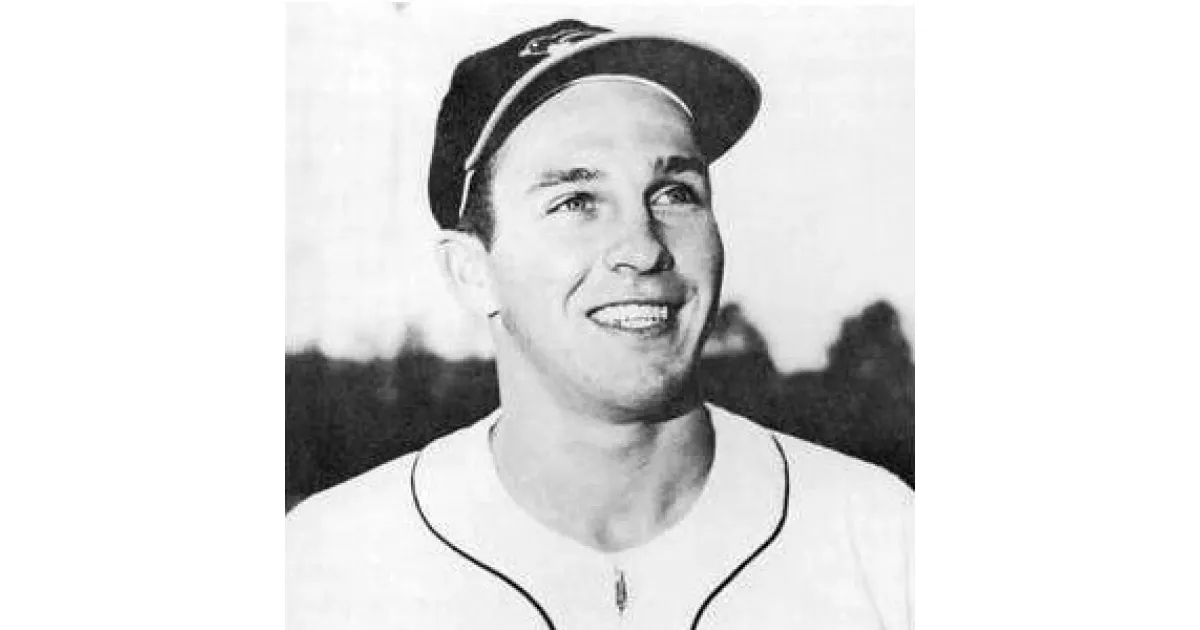Brooks Calbert Robinson Jr. played third base for the Baltimore Orioles for his entire 23-year Major League Baseball career, from 1955 to 1977. Nicknamed "Mr. Hoover" and "the Human Vacuum Cleaner," Robinson is widely regarded as the best defensive third baseman in baseball history. An 18-time All-Star, he won 16 consecutive Gold Glove Awards, the most by a position player at the time. His 2,870 career games at third base were almost 700 more than the next-closest player when he retired and are still the most games played at a single position by any player in major league history. His 23 seasons with a single team were a record until Carl Yastrzemski matched it.
1936: Inaugural Hall of Fame Class
1936 marked the induction of the inaugural class into the Baseball Hall of Fame.
May 18, 1937: Birth of Brooks Robinson
Brooks Calbert Robinson Jr. was born on May 18, 1937.
1952: American Legion Baseball
At age 15, Brooks Robinson played in the regional finals of American Legion Baseball.
1953: American Legion Baseball
Brooks Robinson's American Legion Baseball team played in the sectional tournament in 1953.
May 27, 1955: High School Graduation
Brooks Robinson graduated from Little Rock Central High School on May 27, 1955.
June 3, 1955: Professional Debut
Brooks Robinson made his professional debut on June 3, 1955, with the York White Roses.
September 17, 1955: First Major League Appearance
Brooks Robinson made his first Major League appearance with the Baltimore Orioles on September 17, 1955.
1955: Joining the Orioles
A teenage Brooks Robinson joined the Baltimore Orioles in 1955.
1955: Major League Debut
Brooks Robinson made his Major League debut with the Baltimore Orioles in 1955.
1955: Robinson Plays for York White Roses
In 1955, Brooks Robinson played minor league baseball for the York White Roses.
1956: Minor League Season and Knee Injury
In 1956, Brooks Robinson played in the minor leagues, where he suffered a knee injury, and later appeared in a few games with the Orioles.
July 1959: Meeting Constance Butcher
Brooks Robinson met his future wife, Constance "Connie" Butcher, on an Orioles team flight in July 1959. She was working as a flight attendant, and Robinson, smitten, kept ordering iced teas from her.
October 8, 1960: Marriage to Constance Butcher
Brooks Robinson married Constance "Connie" Butcher on October 8, 1960, in Windsor, Ontario, Canada.
1960: Start of Robinson's All-Star Streak
1960 marked the beginning of Brooks Robinson's impressive streak of 18 consecutive All-Star Game appearances, lasting until 1974.
1961: Birth of Brooks David Robinson
Brooks Robinson's first son, Brooks David, was born in 1961.
1961: Robinson Becomes Restaurant Co-Owner
In 1961, Brooks Robinson became a part-owner of a restaurant called Brooks and Eddie Robinson's Gorsuch House, situated near Memorial Stadium.
1963: Robinson Starts Sporting Goods Business
Brooks Robinson launched Brooks Robinson Sporting Goods in 1963. The business initially thrived, supplying uniforms to local teams and the Baltimore Orioles.
1963: Birth of Chris Robinson
Brooks Robinson's second son, Chris, was born in 1963.
1964: Birth of Michael Robinson
Brooks Robinson's third son, Michael, was born in 1964.
1964: AL MVP Award
In 1964, Brooks Robinson won the American League Most Valuable Player (MVP) award.
1965: Orioles' Success
Between 1965 and 1974, the Baltimore Orioles, with Brooks Robinson as a centerpiece, achieved the best record in the major leagues.
1965: Brooks Robinson's 1965 Season
In 1965, Brooks Robinson played a key role for the Orioles. Despite a late-season slump, he finished with 23 home runs and 100 RBIs, and the Orioles clinched the AL pennant for the first time in his tenure. He was runner-up to teammate Frank Robinson in the AL MVP voting.
1966: World Series Title
In 1966, the Orioles won their first World Series title, and Brooks Robinson finished second in the MVP voting.
1967: Brooks Robinson's 1967 Season
In 1967, despite a concussion in spring training and a late-season slump, Brooks Robinson hit a home run in the All-Star game, the only run for the AL in a 2-1 loss, and tied a major league record by hitting into a triple play for the fourth time in his career.
1968: Birth of Diana Robinson
Brooks Robinson's daughter, Diana, was born in 1968.
1968: Robinson Becomes Spokesman for Crown Central Petroleum
In 1968, Brooks Robinson began working as a spokesman for Crown Central Petroleum, a relationship that lasted for over three decades.
1968: Brooks Robinson's 1968 Season
In 1968, Brooks Robinson played all 162 games, tying Harlond Clift's major league record for assists by a third baseman with 405.
May 1969: Brooks Robinson Breaks AL Home Run Record for Third Basemen
In May 1969, Brooks Robinson broke Harlond Clift's American League record for most home runs by a third baseman, achieving his 179th home run while playing against the Seattle Pilots.
1969: Previous York Team Disbands
1969 marked the end of the previous professional baseball team in York, Pennsylvania, before the establishment of the York Revolution in 2007.
1969: AL Home Run Record
From 1969 to 1980, Brooks Robinson held the American League record for career home runs by a third baseman.
1970: Brooks Robinson's Milestone Year
1970 marked several milestones for Brooks Robinson. He hit his 200th home run, achieved his 2,000th hit (a three-run homer), broke Eddie Yost's AL record for games played at third base, and recorded his 1,000th RBI.
1970: World Series MVP
Brooks Robinson's outstanding defensive performance in the 1970 World Series earned him the World Series MVP Award.
1970: Conversion to Catholicism
In 1970, Brooks Robinson converted to Catholicism, his wife's faith, inspired by his son's question about why they attended different churches.
1970: Robinson Wins Gold Glove
In 1970, Brooks Robinson won a Gold Glove Award.
1971: High Salary
In 1971, Brooks Robinson became one of the few baseball players earning over $100,000 annually.
1971: Brooks Robinson's Record-Breaking Season
In 1971, Brooks Robinson signed a lucrative contract, played 50 errorless games, and broke Eddie Mathews' major league record for most games played at third base.
1972: Brooks Robinson's Challenging Season
During the 1972 season, Brooks Robinson had his lowest home run and RBI totals since 1961 and publicly criticized manager Earl Weaver's comments about veteran players' age, although he acknowledged Weaver's skill as a manager later. Despite the challenges, Robinson won the Commissioner's Award for his representation of baseball.
1972: Brooks Robinson and the 1972 MLB Strike
In 1972, Brooks Robinson, as the Orioles' player representative, voted in favor of the MLB players' strike. While he expressed a desire to play, he felt the strike was necessary for concessions from the owners. He faced backlash from fans upon returning to the field.
1974: Hobbies and Interests
Brooks Robinson's 1974 autobiography mentioned his love of reading, particularly books about the Civil War and World War II, and his enjoyment of country western music.
1974: Sporting Goods Business Expansion and Financial Troubles
In 1974, Brooks Robinson's sporting goods company expanded to York, Pennsylvania, but construction delays led to debt and the eventual closure of the business.
1974: Brooks Robinson's Last Solid Season
In 1974, despite making more errors than usual, Brooks Robinson had his best batting average since 1965. His run in the second-to-last game helped the Orioles clinch the AL East title, marking his last impactful season according to Oriole historian Ted Patterson.
1974: Autobiography Publication and Religious Beliefs
In his 1974 autobiography, Brooks Robinson discussed his religious beliefs and his conversion to Catholicism, emphasizing his faith in Jesus Christ.
1974: Orioles' Continued Success
The Orioles continued their successful run until 1974.
1975: Brooks Robinson's Declining Performance
In 1975, Brooks Robinson struggled with injuries and declining abilities, missing the All-Star Game for the first time since 1960 and experiencing career lows in batting. However, he still led AL third basemen in fielding percentage.
May 17, 1976: Brooks Robinson Loses Starting Position
On May 17, 1976, Brooks Robinson was informed by manager Earl Weaver that he was losing his starting position at third base to Doug DeCinces due to his low batting average of .165. Though his fielding remained strong, his offensive struggles led to the change. Robinson subsequently requested a trade.
1976: Robinson's House Nearly Sold
In the fall of 1976, Brooks Robinson faced the potential sale of his house due to debts from his failed sporting goods business, but he averted this by paying nearly $180,000 from his personal savings.
1977: Retirement
Brooks Robinson retired from professional baseball in 1977 after a 23-year career with the Baltimore Orioles.
1977: Brooks Robinson's Final Season and Retirement
In 1977, Brooks Robinson played his final season in Major League Baseball, with limited playing time. A memorable moment was his walk-off home run against the Cleveland Indians on April 19th. He made his final appearance at bat on August 5th and officially retired on August 21st, receiving a standing ovation from fans at Metropolitan Stadium.
1977: Robinson Inducted into Baltimore Orioles Hall of Fame
In 1977, Brooks Robinson was inducted into the Baltimore Orioles Hall of Fame.
1977: Retirement and Career Statistics
Upon retiring in 1977, Brooks Robinson ranked high in various career statistics.
April 14, 1978: Orioles Retire Robinson's Number
The Baltimore Orioles retired Brooks Robinson's jersey number (5) on April 14, 1978.
1980: End of Home Run Record
Brooks Robinson's AL home run record ended in 1980.
1980: Nettles Breaks Robinson's Home Run Record
In 1980, Graig Nettles surpassed Brooks Robinson's American League record of 266 career home runs as a third baseman.
March 1, 1982: Robinson Refuses to Cross Picket Line
On March 1, 1982, a strike by the American Federation of Television and Radio Artists (AFTRA) affected WMAR-TV, the Orioles' broadcasting station. Brooks Robinson, then a color commentator, refused to cross the picket line, which significantly contributed to the strike ending the next day.
1983: Robinson Elected to Hall of Fame
Brooks Robinson was elected to the Baseball Hall of Fame in 1983 on the first ballot.
1983: Hall of Fame Induction
Brooks Robinson was inducted into the Baseball Hall of Fame in 1983.
1984: Golden Plate Award
In 1984, Brooks Robinson received the Golden Plate Award from the American Academy of Achievement.
1989: Robinson Becomes President of MLBPAA
In 1989, Brooks Robinson became the president of the Major League Baseball Players Alumni Association, succeeding Jim Kaat.
1990: Silver Beaver Award
Brooks Robinson was awarded the Silver Beaver Award by the Boy Scouts of America in 1990.
October 6, 1991: Robinson and Unitas Throw First Pitches at Memorial Stadium
On October 6, 1991, at the final game played at Memorial Stadium, Brooks Robinson and Johnny Unitas threw out the ceremonial first pitches. Robinson threw a baseball and Unitas a football. Robinson also led former Orioles players onto the field in a commemorative event.
1993: Robinson Ends Broadcasting Career
Brooks Robinson concluded his broadcasting career in 1993 to focus on his business ventures.
1999: Robinson Ranked Among Greatest Players
In 1999, Brooks Robinson was ranked 80th on The Sporting News' list of the 100 Greatest Baseball Players.
2005: Robinson Joins Opening Day Partners
Brooks Robinson became a part-owner of Opening Day Partners, a minor league baseball team ownership group, in 2005.
2006: Fielding Record Broken
Brooks Robinson's career fielding percentage record was broken in 2006.
2006: Robinson Helps Restore Lamar Porter Field
In 2006, Brooks Robinson contributed to fundraising efforts to restore Lamar Porter Field in Little Rock, Arkansas, where he played baseball in his youth.
May 16, 2007: Brooks Robinson Drive Dedication
On May 16, 2007, Radio Tower Drive in Pikesville, Maryland was renamed Brooks Robinson Drive in honor of Robinson's 70th birthday.
2007: York Revolution Founded
The York Revolution, a minor league baseball team, was established in York, Pennsylvania in 2007, with significant involvement from Brooks Robinson. It was the first team in York since 1969.
2008: Robinson Elected to All-Time Gold Glove Team
Brooks Robinson was elected to the All-Time Rawlings Gold Glove Team in 2008, receiving the most votes of any player.
2008: Statue Unveiling in York
In 2008, the first statue of Brooks Robinson was placed in the Brooks Robinson Plaza outside WellSpan Park in York, Pennsylvania.
2009: Prostate Cancer Diagnosis and Treatment
In 2009, Brooks Robinson was diagnosed with prostate cancer, underwent successful emergency surgery and treatment, and recovered.
2010: Abdominal Surgery
In 2010, Brooks Robinson underwent emergency abdominal surgery.
March 31, 2011: Hospitalization for Infection
On March 31, 2011, Brooks Robinson developed an infection after recovering from abdominal surgery and spent nearly a month in the hospital, with lingering complications affecting him throughout the year.
October 22, 2011: Statue Unveiling in Baltimore
On October 22, 2011, a statue of Brooks Robinson was unveiled on Washington Boulevard in downtown Baltimore. The statue depicts him about to throw a runner out at first base. Robinson joked that the statue "gave him more hair than he deserved."
January 2012: Accident and Hospitalization
In January 2012, Brooks Robinson fell from a platform at an event in Florida, leading to another month-long hospital stay and rehabilitation.
September 29, 2012: Statue Unveiling at Camden Yards
On September 29, 2012, a larger-than-life bronze statue of Brooks Robinson was unveiled at Oriole Park at Camden Yards. This was part of the Orioles Legends Celebration Series for the ballpark's 20th anniversary.
April 2014: Lawsuit against Seminole Tribe
In April 2014, Brooks Robinson and his attorneys sought a $9.9 million settlement from the Seminole Tribe of Florida due to the accident in January 2012.
2015: Robinson Selected as One of Orioles Franchise Four
Brooks Robinson was named as one of the four greatest living Orioles players in 2015, alongside Jim Palmer, Frank Robinson, and Cal Ripken Jr.
2015: Robinson Auctions Memorabilia for Charity
In 2015, Brooks Robinson auctioned off memorabilia from his baseball career, including his 1970 Gold Glove and 1966 World Series ring, raising $1.44 million for his charitable foundation.
February 2023: Robinson Steps Down as MLBPAA President
In February 2023, Brooks Robinson stepped down from his role as president of the Major League Baseball Players Alumni Association (MLBPAA), a position he held since 1989. He was succeeded by Jim Thome.
September 26, 2023: Death of Brooks Robinson
Brooks Robinson passed away on September 26, 2023.
Mentioned in this timeline
Pennsylvania is a U S state located in the Mid-Atlantic...

Football is a family of team sports centered around kicking...

News encompasses information about current events disseminated through various media...
Florida a southeastern U S state is a peninsula between...

Seattle Washington is the most populous city in both Washington...
Canada is North America's northernmost country stretching from the Atlantic...
Trending
41 minutes ago Iran Strikes Beersheba Hospital, Israel Defends, Trump Considers US Role In Conflict

41 minutes ago Malti's first roller coaster ride at Disney World with Priyanka Chopra: Joyful milestone.

41 minutes ago Hyeseong Kim starts over Conforto; Dodgers consider outfield trades, impacting team lineup.
42 minutes ago Natasha Howard Announcement: Indiana Fever's Newest Signing and Her Fit with Caitlin Clark

Jim Acosta is an American broadcast journalist who worked for CNN from to He rose to prominence as CNN's chief...

2 days ago Aliyah Boston's move and Stephanie White's coaching impact Caitlin Clark and Indiana Fever.
Popular

The Boeing Dreamliner is an American wide-body airliner developed by...

Kristi Noem is an American politician and Air Force Auxiliary...

Cristiano Ronaldo often called CR is a Portuguese professional footballer...

Greta Thunberg is a Swedish climate activist who gained international...

Kash Patel is an American lawyer and former federal prosecutor...

Benjamin Netanyahu is a prominent Israeli politician currently serving as...
